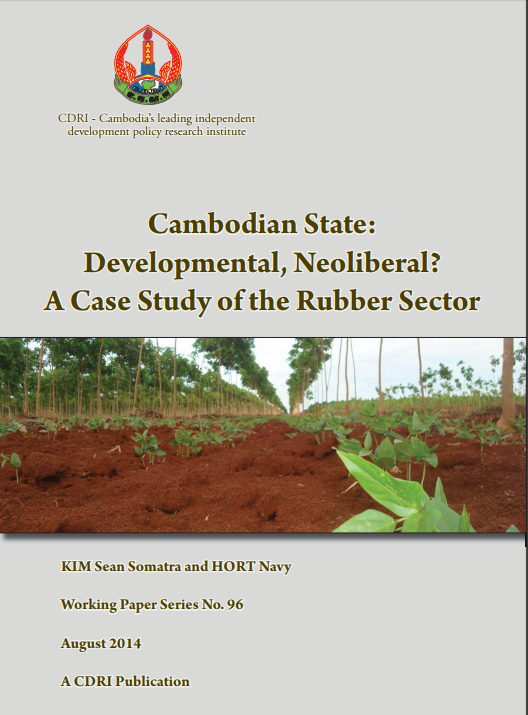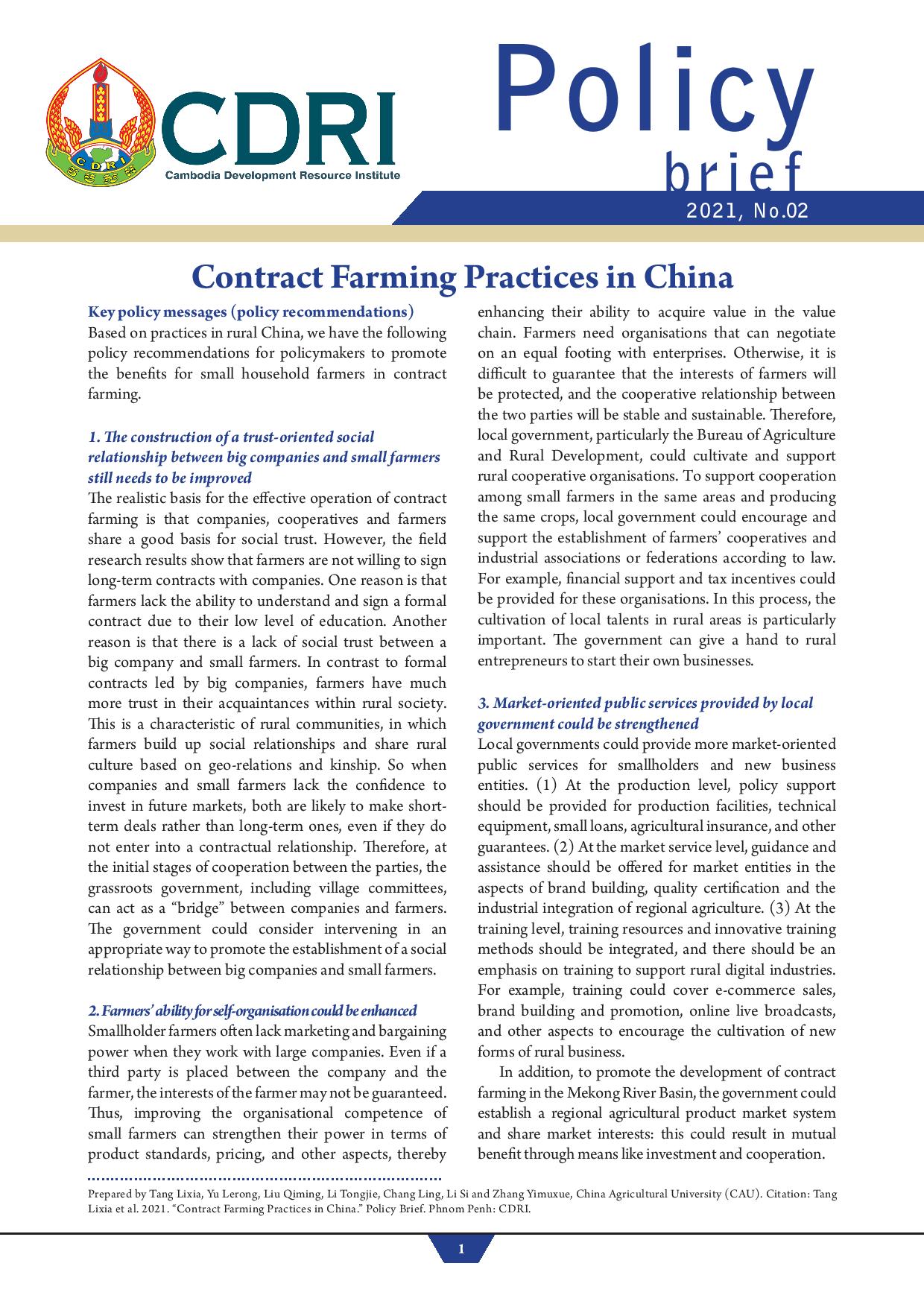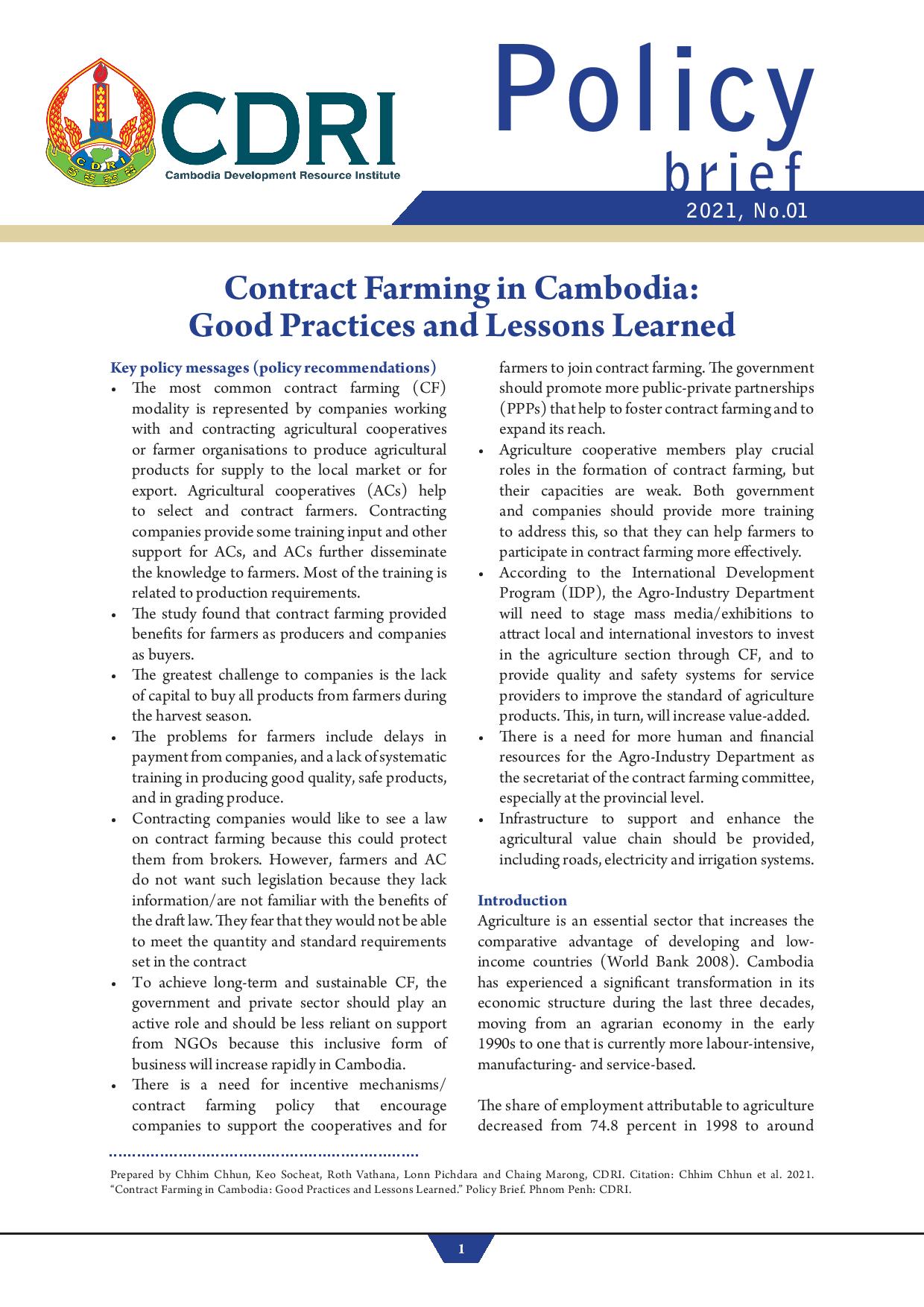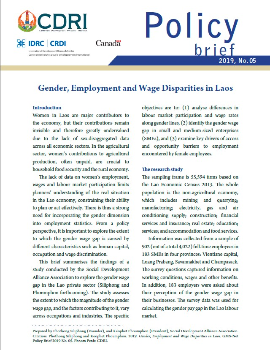
Cambodian State: Developmental, Neoliberal? A Case Study of the Rubber Sector
Keyword: Governance reform, developmental state, rubber sector, state-farmer relations, neo-patrimonialism
Abstract/Summary
The majority of studies of governance reform in Cambodia look at the impact on democratic consolidation; not enough attention is given to development. This paper aims to understand how reforms have impacted the state’s ability to support economic growth, using the framework of developmental state with a focus on four characteristics. Based on a study of the rubber sector, this paper finds that the Cambodian state does not exhibit thorough actions to promote economic transformation, and its effort is limited to policy rhetoric. There is little meaningful connection between the state and small rubber farmers, from whom the state exhibits a high degree of autonomy. With the big companies, the state seems more supportive and collaborative although the cooperation is, at times, for exploitative purposes. The paper also finds that the state is not able to act as entrepreneur of last resort in the sense of a developmental state, but is observed to facilitate private relations characteristic of the distant role of the typical neoliberal state. The paper concludes that the Cambodian state has been neither a developmental nor a neoliberal state, but has mixed developmental, neoliberal and neo-patrimonial characteristics.



